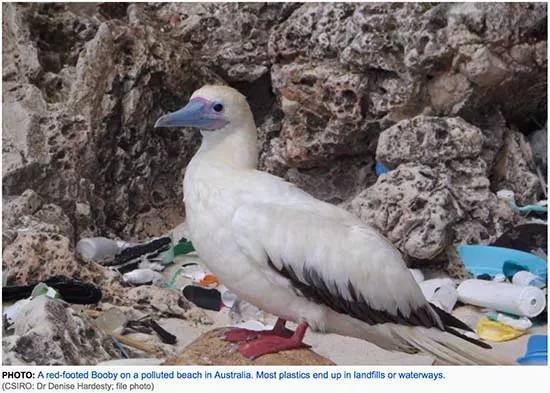Could Plastic Loving Bacterium Clean Up Our Plastic Environmental Mess?

Plastic is everywhere and is a very common part of modern life. There are lots of fantastic traits that make plastic so useful. One of these amazing traits is that many types of plastic are recyclable. After it has fulfilled its usefulness, it can be melted down and repurposed into something new. That sounds great.
Unfortunately, only a small percentage of the plastic unleashed worldwide is recycled. The rest of the plastic ends up in landfills or as litter. A group of Japanese researchers may have a solution to a lot of the plastic sitting in landfills. This group identified a bacterium that degrades plastic.
Ideonella sakaiensis May Be a Game-Changer
Researchers collected debris samples from a PET recycling center. PET is an abbreviation for polyethylene terephthalate. This material is a thermoplastic polymer resin used in everything from fibers for clothing to food containers and more.
Dr. Kenji Miyamoto from Keio University, who was part of the team, explained, “We then successfully isolated a bacterium, Ideonella sakaiensis, from the group and found that this strain produces two enzymes.”
These enzymes are PETase and MHETase. Essentially, PETase breaks down PET. During this process, an acid, MHET, is created. The second enzyme identified by the researchers, MHETase, safely breaks down MHET. The end products are environmentally harmless, and the bacterium uses them both as an energy source. It takes about six weeks for the process to run its course. For a more technical explanation, check this out.
The research team determined that this bacterium evolved relatively recently. There are no other known species that can metabolize, or break down, PET. The team did find numerous micro-organisms that could create one of the two enzymes. It is believed that the bacterium formed by swapping genes amongst other bacteria.
Breakthrough Bacterium May Change How Plastic Trash Is Handled
This finding is an innovation and could dramatically change how trash is handled. It is still preferable to recycle plastic. Nonrenewable resources are used to create plastic. When PET is recycled, those nonrenewable resources are put back to use. However, this bacterium is a safe and effective way to handle plastic already passed over for recycling.
